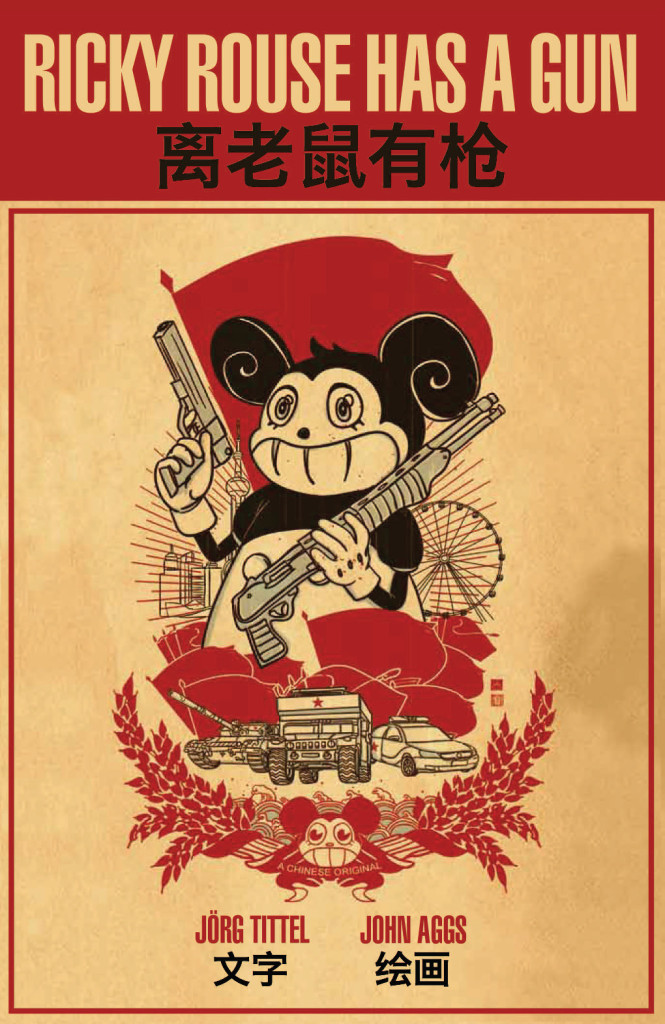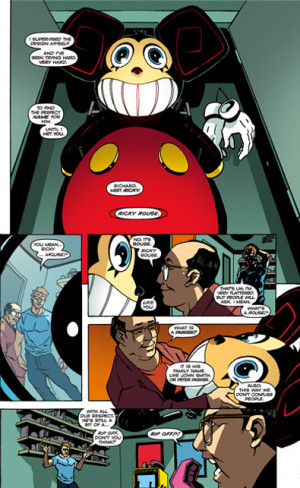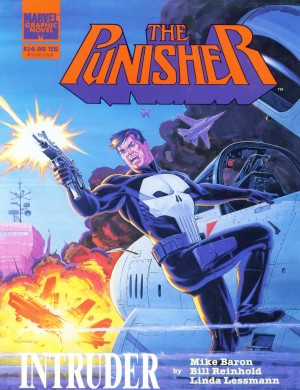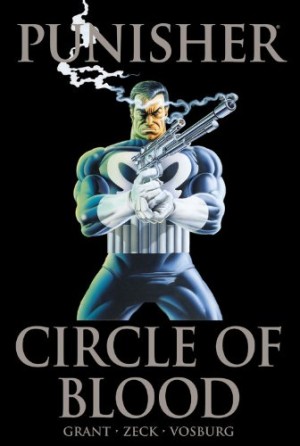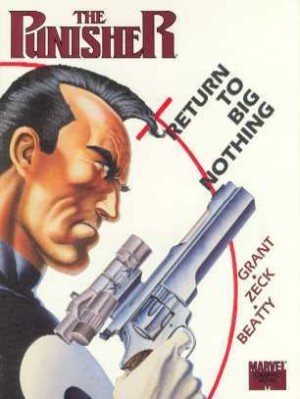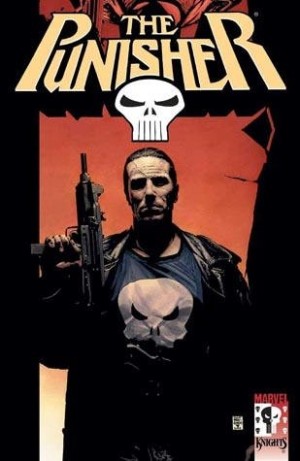Review by Karl Verhoven
It’s not that William Chua’s striking and symbolic cover is a misrepresentation, but based on it and the content accompanying it on the publisher’s list, many may not expect Ricky Rouse has a Gun to be the graphic novel equivalent of a Bruce Willis action movie. Well, most of it, anyway.
The early part of the book is interesting. It feeds on the Chinese culture of ‘shanzai’, which in Western terms would be seen as blatant infringement as it involves appropriating something copyrighted or trademarked, marginally altering it, and re-presenting it as authentic Chinese product. The Ricky Rouse of the title is a US army deserter from Afghanistan who genuinely has that name, and therefore seems to a theme park owner the ideal person to wear his new Ricky Rouse costume. He can greet children as they rush towards the Rocky Mountain or Caribbean Pirates rides. The introduction explains the principle of shanzai, quoting the park owner’s justification, which bears repeating: “I’ll tell you what is a rip-off, for Hollywood to make and remake the same movie ten times every year. Remake here, sequel there, like the public has amnesia. Charging five dollars more each time just for 3D. That is a rip-off. That is piracy. That is a crime.”
From that point, though, Jörg Tittel creates his own form of shanzai by aping the format of the very action movies he’s criticising. This is note for note. The cast list has the classic capable loner, the antagonist whose grudging respect and pep talk is inspirational, the daughter in danger, and the misguided revolutionary. The joke of Ricky rampaging through the theme park with a gun and shooting at dwarves and Dumbo kicks off around a third of the way through the book and is seen through to the end. It’s intended as satire, but the note perfect reproduction only occasionally even qualifies as parody. That’s having your cake and eating it. And we all know that’s not possible.
Even forgetting that and considering the book without layers, it’s bland, predictable and emotionally void, bringing to mind a Sylvester Stallone last reel homily after a ninety minute shooting orgy. Anyone who’s seen any action movie will pick the victims and the surprise unmaskings (with one exception, for which there are no clues) from the earliest stages, and at the finale Tittel takes a final step into parody dialogue as well.
The art of John Aggs, is a mixed blessing. The grainy detail is appropriate, but the panel layouts are functional rather than impressive, and light on variation, and when the major unmasking occurs the likeness is very poor.
If you enjoy pretty well every Punisher graphic novel whether good, bad or indifferent, this is for you.
